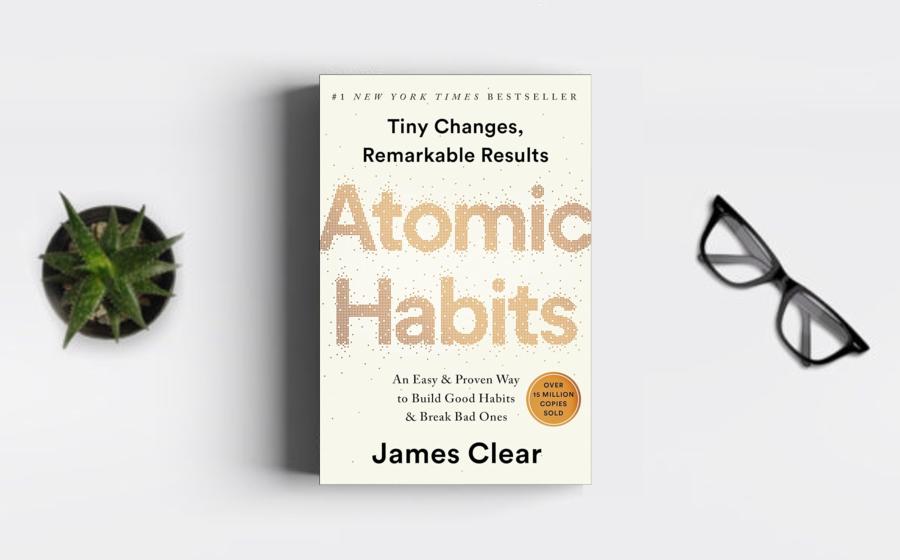"Atomic Habits" by James Clear is a groundbreaking
book that explores the transformative power of small
habits and their profound impact on personal and
professional success. Through a blend of scientific
research, real-life examples, and practical strategies,
Clear presents a compelling case for the idea that tiny
changes, when consistently applied, can lead to
remarkable results.
The book begins by
introducing the concept of atomic habits, which are
tiny, incremental changes that compound over time to
yield significant outcomes. Clear argues that habits are
the compound interest of self-improvement, and by
focusing on making small improvements consistently,
individuals can achieve extraordinary results in various
areas of their lives.
One of the key insights in
"Atomic Habits" is the emphasis on the importance of
identity-based habits. Clear argues that lasting change
occurs not only by changing what we do but by changing
who we believe we are. By aligning our habits with our
desired identity, we create a powerful connection
between our behavior and our sense of self. This concept
shifts the focus from setting goals to building systems
and processes that reinforce the identity we want to
embody.
The book also introduces the four laws of
behavior change, a framework that provides a systematic
approach to building and sustaining habits. These laws
are: make it obvious, make it attractive, make it easy,
and make it satisfying. Clear explores how these laws
can be applied to create positive habits and break
negative ones, offering practical examples and
actionable steps for implementation.
Clear delves
into the science behind habit formation, explaining the
role of cues, cravings, responses, and rewards in
shaping behavior. By understanding the neurological and
psychological aspects of habits, readers gain insights
into how habits are formed, maintained, and can be
transformed. This knowledge empowers individuals to make
intentional choices about their habits, leading to
positive and lasting change.
Moreover, "Atomic
Habits" explores the concept of the aggregation of
marginal gains, popularized by the success of the
British cycling team. The idea is that by making small,
incremental improvements in various areas, the
cumulative effect can result in significant overall
improvement. Clear encourages readers to identify and
optimize the small habits that contribute to their
goals, emphasizing the power of continuous improvement.
The book provides a comprehensive guide to habit
stacking, a technique that involves integrating new
habits into existing routines. By leveraging established
habits as triggers for new behaviors, individuals can
seamlessly incorporate positive changes into their daily
lives. Habit stacking simplifies the process of building
new habits and reduces the friction associated with
behavior change.
One of the strengths of "Atomic
Habits" lies in its practicality and accessibility.
Clear uses relatable examples and anecdotes to
illustrate key concepts, making the material engaging
and applicable to a wide audience. The book avoids
overwhelming readers with complex theories, focusing
instead on actionable advice that can be implemented
immediately. This approach makes the book a valuable
resource for individuals at any stage of their
self-improvement journey.
The narrative is
enriched by a myriad of real-life stories and case
studies that highlight the transformative power of
habits. From athletes and artists to entrepreneurs and
ordinary individuals, the book showcases diverse
examples of people who have achieved remarkable success
by leveraging the principles of atomic habits. These
stories serve as both inspiration and evidence of the
universal applicability of the book's principles.
"Atomic Habits" also addresses the challenges of
breaking bad habits and provides insights into
understanding and overcoming the various obstacles that
hinder positive change. Clear introduces the concept of
habit tracking as a tool for self-awareness and
accountability, enabling individuals to monitor their
progress and identify areas for improvement.
In
terms of inspiration, "Atomic Habits" motivates readers
by reframing the approach to personal development.
Instead of fixating on monumental goals, the book
encourages individuals to focus on the small, consistent
actions that shape their daily lives. This shift in
perspective fosters a sense of empowerment, as readers
realize that they have the agency to make meaningful
changes by mastering their habits.
The book's
emphasis on the compounding nature of habits instills a
sense of hope and optimism. Readers are reminded that
each small step contributes to a larger journey of
self-improvement. This message is particularly powerful
for those who may feel overwhelmed or discouraged by the
magnitude of their goals, as it highlights the
incremental progress that can lead to significant
transformation over time.
Furthermore, "Atomic
Habits" promotes a growth mindset by emphasizing the
idea that improvement is an ongoing process. The book
encourages readers to view setbacks not as failures but
as opportunities to learn and adjust their approach. By
reframing challenges as part of the learning curve,
individuals are inspired to persist in their efforts and
embrace the journey of continuous improvement.
The book's practical approach to habit formation also
fosters a sense of agency and self-efficacy. Clear
provides readers with actionable strategies and tools,
empowering them to take control of their habits and,
consequently, their lives. This empowerment is a driving
force behind the book's ability to inspire individuals
to initiate and sustain positive changes.
"Atomic Habits" is a compelling exploration of the transformative power of small habits. James Clear's blend of scientific insights, relatable examples, and actionable advice makes the book an accessible and impactful guide to personal development. By focusing on the compounding nature of habits, the book inspires readers to embrace the journey of continuous improvement and empowers them to make meaningful changes in their lives.






